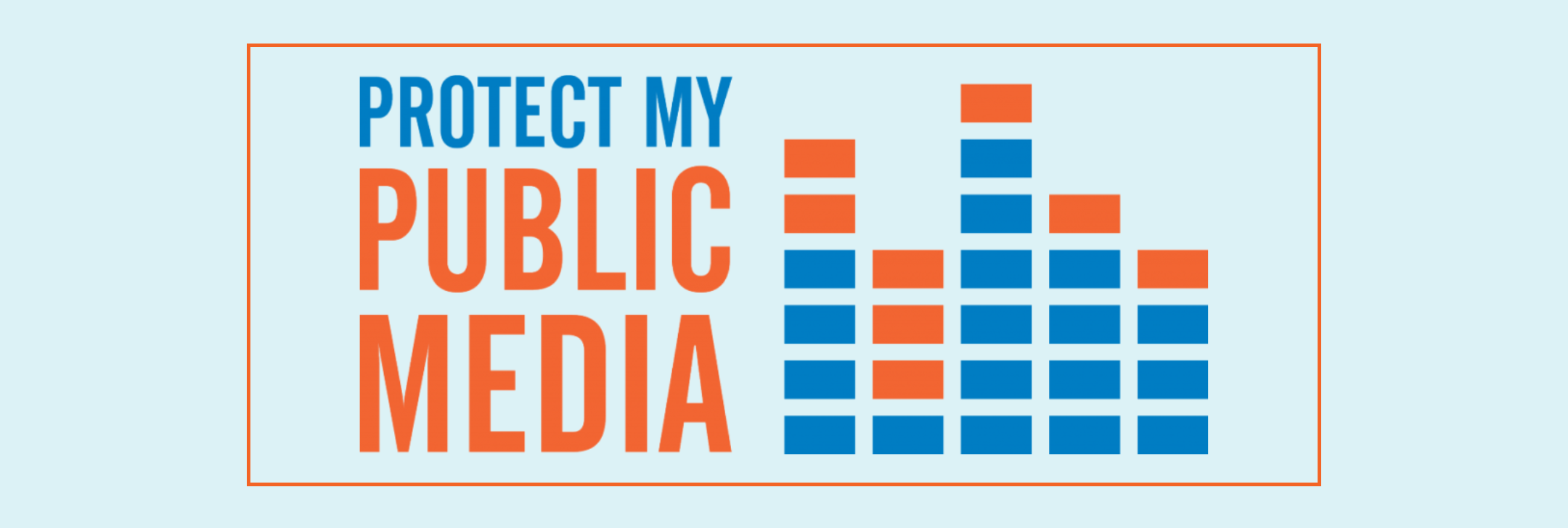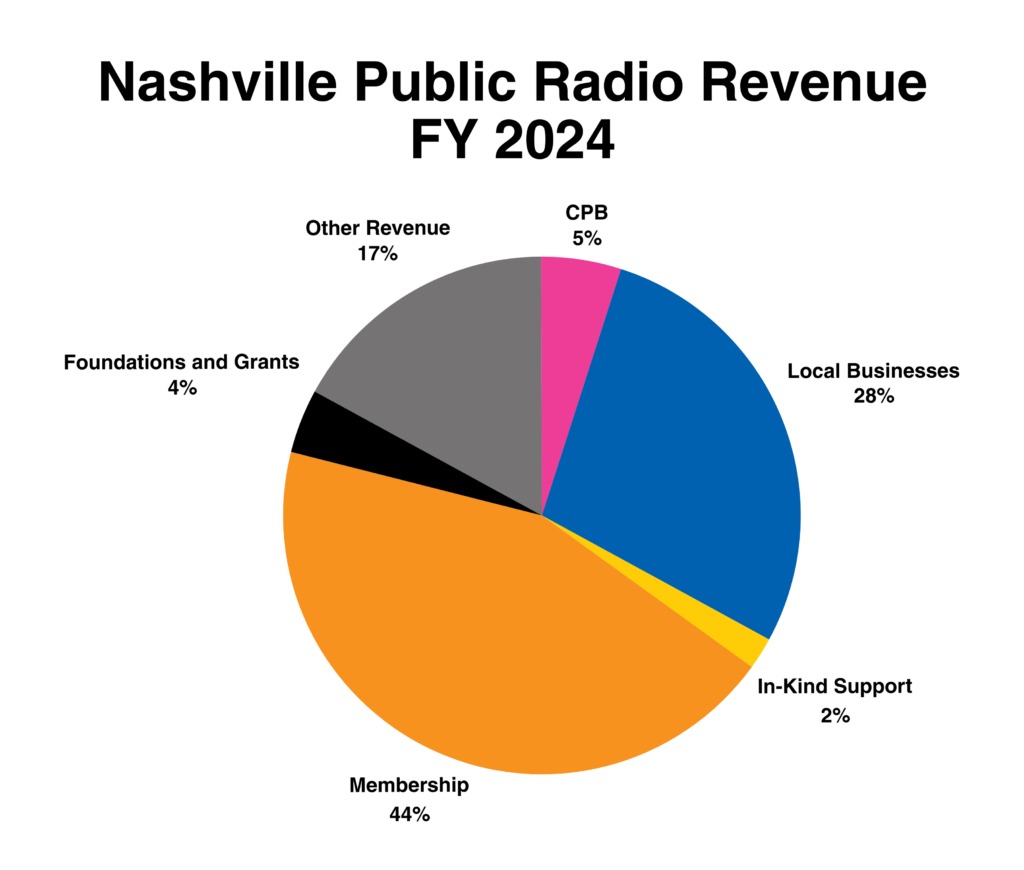
A timeline of recent events:
- July 18, 2025: The U.S. House gives final passage of the president’s rescissions package, cutting all federal funding for public broadcasting for the next two years, funds that had been previously approved.
- July 17, 2025: The U.S. Senate narrowly passed the president’s rescission package to claw back $1.1 billion in previously approved funding for public broadcasting for 2026 and 2027. Since some changes were made in the Senate, the package goes back to the House for a final vote.
- June 12, 2025: The U.S. House narrowly voted Thursday to cut the entirety of CPB funding for public radio and television stations already approved by Congress for the next two years.
- June 12, 2025: The U.S. House is expected to vote on a rescission package that would claw back previously allocated funding for public media through the Corporation for Public Broadcasting.
- June 3, 2025: The White House has sent Congress a rescissions package to eliminate $1.1 billion in already-approved funding. If enacted, it would rip essential services out of communities and force rural stations off-air. The House is expected to vote within days.
- May 27, 2025: NPR and three member organizations in Colorado (Colorado Public Radio, Aspen Public Radio and KSUT in the Four Corners region) sue the Trump White House over the executive order that aims to prevent federal funds from going to NPR and PBS.
- May 1, 2025: President Trump issues an executive order directing the Corporation for Public Broadcasting to “cease funding for NPR and PBS,” alleging ideological bias. (The CPB distributes federal funding to independent stations who pay NPR and PBS for programming.) NPR and PBS respond by asserting that the president has no authority to make this order.
- Apr. 29, 2025: The CPB sues President Trump, arguing that he has no authority to fire its board members because it is not a federal agency. U.S. District Court Judge Randolph D. Moss blocks the firings, pending a hearing on May 14.
- Apr. 28, 2025: The White House sends an email to three out of the five board members at the CPB, notifying them of their dismissal.
- Apr. 14, 2025: The White House drafts a memo formally asking for Congress to rescind billions in previously approved federal funding, including $1.1 billion to CPB. This amounts to two years of public media funding in fiscal years 2026 and 2027, except $100 million preserved for emergency communications. NPR reports it will be sent to Congress once lawmakers return from recess on April 28.
- Mar. 26, 2025: U.S. Rep. Marjorie Taylor Greene (R-Ga.), chair of the new House subcommittee Delivering on Government Efficiency, questions NPR and PBS leaders on accusations of “systematically biased content” in a House hearing titled “Anti-American Airwaves.”
- Feb. 11, 2025: U.S. Sen. John Kennedy (R-La.) introduces a bill to amend the Communications Act of 1934 to prohibit federal funding for CPB, one of several similar bills before Congress.
- Feb. 1, 2025: NPR and other major news outlets are ordered to vacate their office space at the Pentagon.
- Jan. 30, 2025: Trump’s FCC Chief opens an investigation into NPR and PBS.
- Jan. 27, 2025: The U.S. Office of Management and Budget issues a temporary pause on federal financial assistance programs (which has since been rescinded).
- Nov. 20, 2024: In Wall Street Journal editorial, Elon Musk and Vivek Ramaswamy list CPB as a target for federal funding cuts as they outline their plans for the Department of Government Efficiency, or DOGE.
Alongside recent lawsuits against ABC, CBS and the Des Moines Register, it’s hard not to see the moves against public broadcasting as part of a pattern targeting the media more broadly. The combined effect has the potential to inexorably change the future of public media — so we want you to understand how we got here, what’s at stake and what you can do to help.
What is CPB?
The Corporation for Public Broadcasting is a private, nonprofit authorized by Congress in the Public Broadcasting Act of 1967. Congress appropriates funds to CPB in two-year, advance increments; CPB then distributes over 70% of those funds to 1,500+ local public media stations nationwide. Stations in rural areas are the most reliant on CPB funding due to smaller and often less-resourced populations. The loss of CPB funding would devastate these outlets.
You may be surprised to learn that federal funding via CPB makes up just over 5% of Nashville Public Radio’s annual operating revenue. That means every $1 of federal funding helps us to raise approximately $19 from local sources. This strong return on taxpayer investment turns out to cost just $1.60 per U.S. taxpayer annually. What does your $1.60 share help to fund?
- Free access to trusted local news, educational resources and cultural programming
- Payment of music licensing fees for the entire public media network, helping non-commercial music stations, like WNXP, serve you with music discovery
- National emergency alert infrastructure that makes public safety communications possible
- Interconnection, or the broadcast technology system that enables the public media network to operate
Revenue diversification is part of our strategy to stay strong and sustainable. However, the reality is that without alternative support, the loss of CPB funding would lead to an equivalent loss of local programming.
What’s the difference between NPR and Nashville Public Radio?
The establishment of CPB in 1967 paved the foundation for a national network of public media stations. NPR (National Public Radio) was incorporated in 1970, with 88 original member stations representing non-commercial, educational and community radio stations across the country.
- NPR and Nashville Public Radio are two separate 501(c)(3) nonprofits. Our organizations collaborate but are independently led.
- Nashville Public Radio makes independent programming decisions based on local community needs. Programs like This is Nashville on WPLN and Nashville Artist of the Month on WNXP are made possible because of your financial support.
- Nashville Public Radio pays licensing fees directly to NPR for programs like Morning Edition and All Things Considered. That’s why NPR is made possible by “listeners like you” — when you donate to Nashville Public Radio, it supports both local and national programming.
So, what’s the threat?
While national news and commentary feels ubiquitous, coverage of our own communities is diminishing at a staggering rate. One-fifth of American communities now live in or are at risk of becoming “news deserts,” and more than half of all U.S. counties have limited access to reliable local news and information, according to Northwestern University’s Medill School. This decline has weakened civic participation, fueled misinformation, deepened polarization, and reduced government accountability.
At this precarious moment for local news, CPB funding remains a critical safeguard against further erosion. Hundreds of smaller communities depend on public media as one of the last locally operated and locally controlled sources of free, trusted information. These stations have successfully adapted, in large part, due to dedicated CPB funding. If federal dollars were to disappear, many of them would simply cease to exist, creating entire communities with few options beyond social media — where misinformation thrives — or subscription-based news, which limits information to those who can afford it.
And since NPR and PBS are funded by local stations, they would have to either make up that revenue elsewhere or discontinue services to reduce costs. The ripple effects could bring public media to its knees.
How you can help
Donate to Nashville Public Radio to help sustain your local programming. Thank you!



